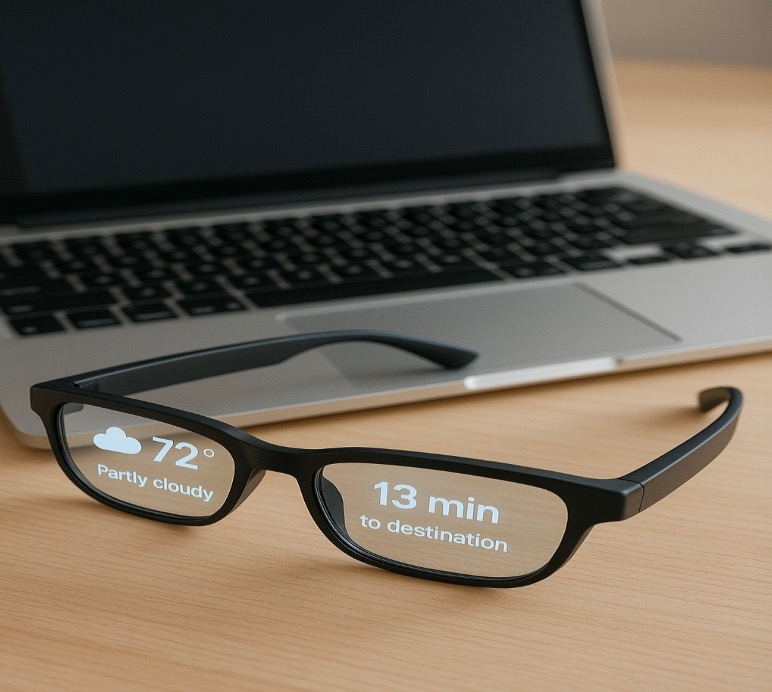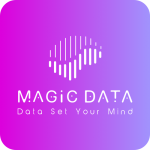
The Emergence and Challenges of AI Glasses
AI Glasses are rapidly moving from a technological concept to the mass consumer market, and their unique advantages as wearable smart devices make them expected to become the personal assistant of each independent individual and reshape the gateway to human-computer interaction. Recently, with the deep integration of AI large language models and augmented reality technology, the smart glasses market has ushered in new development opportunities. The Ray-Ban smart glasses cooperated by Meta and Ray-Ban have accumulated sales of more than 2 million units, which verifies the market potential. Domestic manufacturers such as Xiaomi, Huawei, and Thunderbird Innovation are also accelerating the layout, promoting the evolution of AI glasses from “function overlay” to “scene reconstruction”. According to market research organizations, global smart glasses shipments in 2025 will reach 12.8 million units, a year-on-year growth of 26%. This trend shows that the market potential of AI glasses is huge.
The core competitiveness of AI glasses lies in their “seamless interaction” and “contextual intelligence”. Compared with cell phones, AI glasses realize more natural communication through voice, gesture, eye tracking, and other interaction methods. For example, Meta's Ray-Ban glasses already support AI voice assistant, and Xiaomi yesterday released AI glasses to further break through the edge computing limitations - featuring Qualcomm AR1 + Hengxuan dual-chip architecture, voice recognition, real-time translation, health monitoring, and other functions of the localized processing, significantly reducing the latency and improve privacy. Of particular interest is the depth of Xiaomi's integration with its "people, car, and home ecosystem": linking with Xiaomi HyperOS to achieve cross-device collaboration (such as car navigation synchronized to the glasses), intelligent perception of the environment (scanning the building/restaurant to push real-time information). It makes AI glasses evolve from an “interaction tool” to a real active assistant in the whole scene and shows the decision-making advantage of end-side large language models in professional fields such as medical emergencies, industrial inspection, and so on.
AI glasses are powerful and can provide users with a variety of convenient services, not only providing real-time translation, voice assistant AR navigation, and other functions but also providing users with timely information support in daily life. However, despite the broad application prospects, AI glasses still face many technical bottlenecks. The lack of smoothness of natural voice interaction leads to dialog interruptions and response delays; the limited compatibility of multiple languages and dialects makes it an obstacle in cross-cultural communication; the poor adaptability of the scene, especially in noisy environments, and the accuracy of voice recognition drops significantly. These problems seriously restrict user experience and market penetration.
High-quality voice data drives experience upgrade
In the development of AI glasses, high-quality voice data is the core driving force to improve the interaction experience. Magic Data, with its rich data resources and advanced data processing technology, provides strong support for the improvement of the voice interaction ability of AI glasses.
1. Natural Conversation Revolution: Magic Data's voice data set makes the interaction of AI glasses no longer mechanical and hard, but smooth and natural like a real person, whether it's a casual conversation, task execution, or complex consultation, all of which can be accurately responded to.
The key ability of AI glasses is to realize accurate understanding and feedback of human voice in the case of rapid feedback from the machine. Magic Data's high-quality duplex natural conversation dataset analyzes the speaker's intonation and emotion through independent audio tracks, which can accurately capture the subtle changes in the conversation, and can effectively solve the problem of AI glasses' conversation interruptions and response delays. The AI glasses can, through deep learning algorithms learn the conversation patterns in different scenes and realize contextually coherent interaction. This means that AI glasses can respond naturally and smoothly like human beings, no matter whether the user is engaged in daily chit-chat or dealing with complex task commands.
Recommended Dataset:
Duplex Spontaneous Conversation Training Dataset
Accurately reproduces natural interaction features in human conversations, such as interruptions, overlaps, intonation changes, etc., to help AI models master complex conversation logic.
- Independent audio track acquisition
- Multi-speaker categorization annotation
- Multi-language support
- Multi-scenarios
- Tens of thousands of hours in total
Magic Data Conversation Dataset
Effectively solves the problem of contextual coherence in multi-round conversations by building a multi-million conversational corpus.
- Provided by more than 150,000 speakers from all over the world
- Content covers multiple domains
- Multi-round conversations Duplex channel, accumulating tens of millions of dialogue rounds
- Each set of dialog consists of two speakers around a topic, and the history of the dialog is closely related to the current content.
- Suitable for training large models in back-and-forth conversation and contextual logical reasoning ability, etc.
2. Global Language Coverage of dialects and accents: From Mandarin to Cantonese, from English to Spanish, and even dialects and accents, Magic Data's multi-language dataset enables AI Glasses to truly realize “communication without borders”, and become a portable translator in the era of globalization.
In the context of globalization, the diversity of languages and cultures is a challenge that AI glasses must face, and Magic Data's carefully crafted multi-language and multi-domain natural spoken speech dataset, which covers real-life scenarios in multiple foreign languages, can effectively break down language barriers in cross-border communication and other scenarios. These datasets are designed by linguistic experts to standardize vocabulary usage while faithfully reproducing natural conversation scenarios., thus taking into account the adaptability of different languages and cultures while improving translation accuracy. For the situation that dialects vary greatly in different regions of China, Magic Data also provides dialect datasets, covering the collection of real-life scenes in Shanghainese, Cantonese, and many other dialects. Through these datasets, AI Glasses can accurately recognize and understand users' dialect expressions to meet their needs in life, travel, and other scenarios, expanding user groups and application scenarios, and crossing language and cultural barriers.
Recommended Dataset:
Multilingual Spoken Speech Dataset
Effectively improve the diversity, spoken expression, and generalization ability of speech recognition big model/speech end-to-end model. Its core value focuses on: improving speech recognition accuracy, better recognizing natural pronunciation phenomenon, and realizing smooth interaction of natural spoken language.
- Covering 30+ languages including Chinese, English, French, Japanese, Korean, etc.
- Scene types are rich, and the number of people is large
- Word accuracy is high
- Sentence completeness is high
- Punctuation is reasonable
3. Extreme Robustness in Noisy Environments: Whether in a noisy subway, a bustling restaurant, or an outdoor sports scene, Magic Data's noise-enhanced dataset ensures that the AI Glasses accurately pick up the sound, so that users’ commands are not disrupted by the environment.
In real life, users are often in a variety of noisy environments, such as on the street, in a restaurant, or on public transportation. These noises can cause serious interference with the voice recognition ability of AI glasses. Magic Data's noisy multilingual speech dataset contains speech data from a variety of real-life scenarios such as home noise, outdoor noise, and music noise. Trained with these data, AI Glasses can maintain a high recognition rate in complex noise environments, ensuring that users can use the voice interaction function normally even in noisy scenes.
Recommended Dataset:
Noisy Speech Dataset
applies to the robustness of speech recognition
- Includes Chinese and English
- Scale of more than 10,000 hours
- Covering real environments such as office/subway/bus/coffee shop/curbside/shopping malls and in-vehicle
- Content involves daily spoken language, human-computer interactions, and command and control.

Data is the Competitive Edge
In the market competition of AI glasses, data is the core competitiveness. High-quality datasets have a profound impact on the performance, user experience, and market competitiveness of AI glasses. Whoever has more accurate, richer, and smarter data will be able to take absolute advantage of natural interaction, multi-language understanding, environment adaptability, and personalized service. Magic Data's high-quality data set is the core engine of this smart revolution - it allows AI glasses to truly " understand" the world, understand the user, and become everyone's indispensable personal assistant.
With the explosion of large language models, edge computing, and spatial awareness technologies, AI glasses are evolving from “information displays” to truly intelligent life forms - they can anticipate your needs, optimize your schedule, and even become your fitness coach, language tutor, and creative assistant. Behind all this, high-quality data is the key to making AI glasses “learn to think”.
Data determines intelligence, and intelligence defines the future.
Magic Data, together with AI Glasses, will reshape the new era of human-computer interaction!
Join the next-generation interaction revolution
Visit magicdatatech.com to explore Magic Data's high-quality speech datasets. Whether you're developing consumer-facing smart glasses or focusing on improving the interactive performance of AI glasses in complex environments, these datasets provide the foundation you need. For dataset inquiries, product co-creation, or community support, please contact us via the Finished Datasets section on magicdatatech.com or the open-source community at magichub.com. Let's shape the future of AI eyewear together.
For further dataset details, please feel free to contact business@magicdatatech.com.

